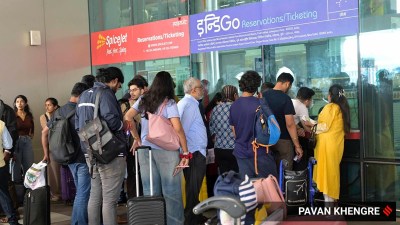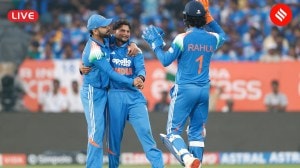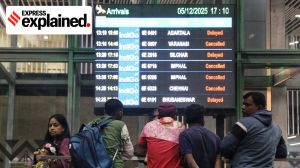Patel was a flamboyant politician known for sharp wit
It was in the winter of 1998. J.H. Patel, who then was the chief minister of Karnataka, was boarding the Kanyakumari Express. A newspaper ...

It was in the winter of 1998. J.H. Patel, who then was the chief minister of Karnataka, was boarding the Kanyakumari Express. A newspaper correspondent asked him where he was going. “Sabrimala,” Patel replied. “They say those who have made two trips to Sabrimala must sooner or later go for the third time.”
The words seemed ironical coming from a man for whom the existence of God had always mattered little. In the evening of his life, especially during his chief ministership and after, Patel became known for his witticisms on spirituality.
A hardcore socialist, he had accepted Ramamanohar Lohia as his guru. In his youth, Shantaveri Gopala Gowda, Karnataka’s very own towering socialist, was his inspiration.
Yet, when it came to his personal lifestyle, he was something of an epicure, a lover of the good things of life. Patel always stood out from the crowd of other ministers because of his rather colourful lifestyle. His startling confessions about his weakness for wine and women were always tinged with a self-mocking air, and none knew whether to believe his honesty or his sense of humour.
His remarkable oratory, be it in Kannada or English, and his loquacity bailed him out of many situations. Sharp wit and sarcasm were his weapons against critics, so was his ability to turn a serious subject into a light-hearted banter.
Patel, however, always encountered the danger of being dismissed as a non-serious person because of his wit and humour. This was only a mask. He was one of the few serious thinkers of his times and had immense interest in subjects such as land reforms, Panchayat Raj and the use of Kannada.
Wit may have imbued most part of Patel’s three-and-a-half year tenure as chief minister but his exit from power was not all that comic. He dismissed all those he suspected to be the sympathisers of H.D. Deve Gowda from his ministry in 1999. He was a party to the split in the Janata Dal. It was he and his mentor Ramakrishna Hegde who built Janata Dal (United).
It was then that the bad times came home to roost. Not just he but his nascent JD(U) too was thrown in the abyss of defeat. In the Assembly, his party came a poor third. The loss of power shook him for a while. Soon, all his ailments erupted and his health began to fail him.
Born on Oct 30, 1930 into an affluent agricultural family at Kariganur in the Shimoga district (now called Davanagere), Patel embraced socialism during his student days. Years after his graduation in law, he straightaway contested the Lok Sabha elections from Shimoga as a nominee of the Samyuktha Socialist Party in 1967. He won, and even made history by making a speech in Kannada in the Lok Sabha.
Barring a few occasions, Patel always represented Channagiri in the Assembly. In the Ramakrishna Hegde ministry in 1983, Patel was the minister of Industry and Power. Even when Janata Dal came to power in 1994, he held the Power and Tourism portfolios as the deputy chief minister in the Deve Gowda ministry. On May 31, 1996, he became the chief minister.
He did scale the political peak in Karnataka. But on his way to success, he abandoned some of the values he held close to his heart. And that was not just tragic for him personally but also for all those who had at one point believed in him.
- 01
- 02
- 03
- 04
- 05































